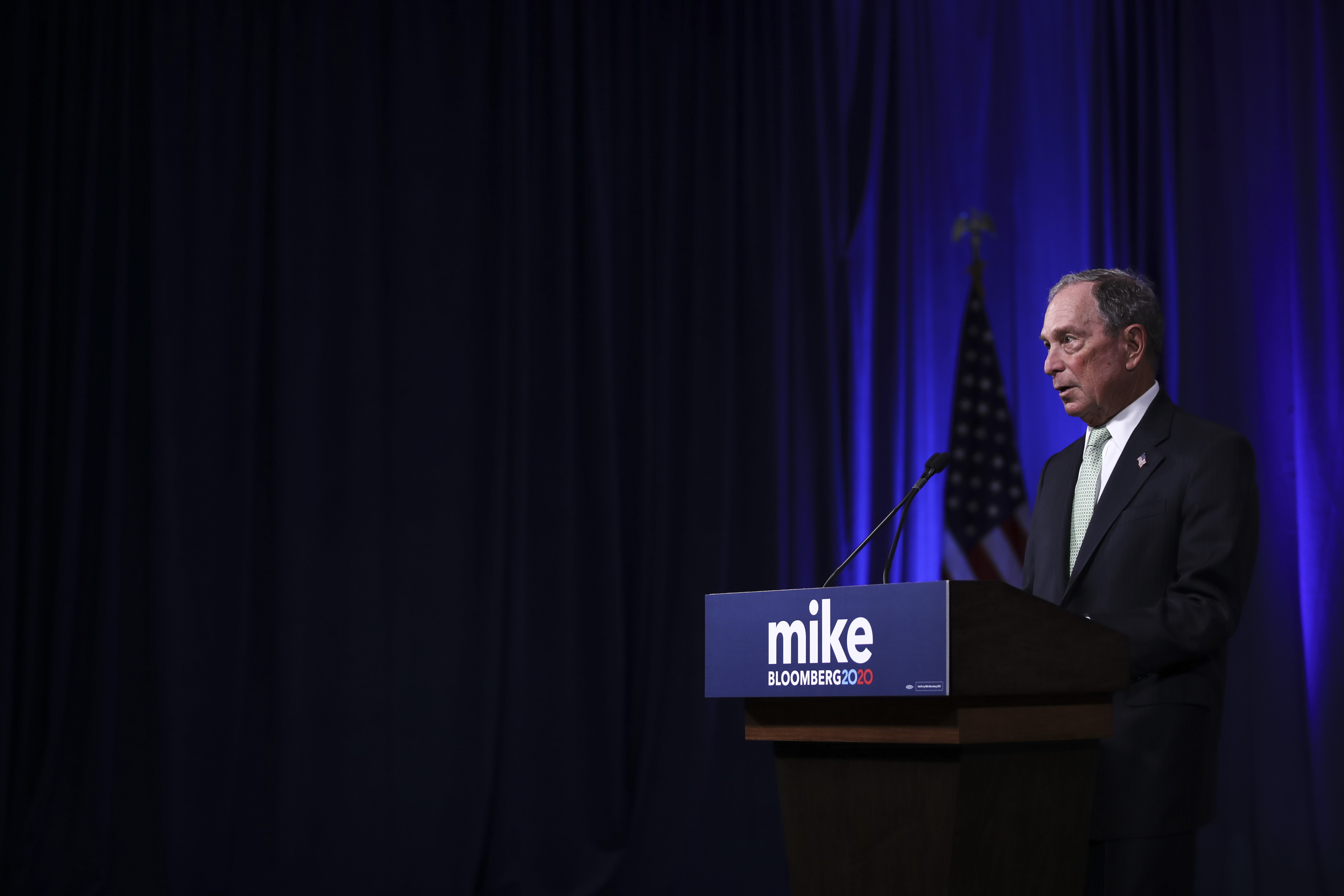All the free speech money can buy
The escalating arms race of unlimited campaign spending


A free daily email with the biggest news stories of the day – and the best features from TheWeek.com
You are now subscribed
Your newsletter sign-up was successful
This is the editor's letter in the current issue of The Week magazine.
A sack of money, the Supreme Court has decreed, is just another form of speech, which is why Mike Bloomberg will have vastly more to say about the 2020 presidential race than almost every other American. Bloomberg intends to shell out $1 billion for his "free" speech about why President Trump must be defeated (and why Bloomberg is the Democrat best suited to beat him). That's about 10 times what any individual has ever spent to influence a presidential race — and Bloomberg promises to keep spending even if another Democrat gets the nomination. The former New York City mayor, 77, is worth about $58 billion, so he can easily afford this indulgence.
With no sane limits on political spending, it was inevitable that attempts to buy the White House — and Congress — would escalate. In the 1976 Buckley ruling, the Supreme Court struck down Watergate-inspired caps on the amount of money wealthy individuals could spend to influence a race or donate to their own campaigns. The 2010 Citizens United ruling, which removed limits on political spending by "outside" groups, unleashed a tsunami of contributions from the superwealthy, including Charles and David Koch, George Soros, Sheldon Adelson, and Tom Steyer. In 2010, the top individual contribution was $7.5 million; by 2018, it had soared to $122 million (by Adelson, mostly in Trump's behalf). Now Bloomberg is raising the ante into the billions. Money alone, of course, does not win elections. But the blizzard of ads, get-out-the-vote operations, and skilled campaign staff that only money can buy can make a crucial difference. In the majority opinion in Citizens United, Justice Anthony Kennedy insisted that "the appearance of influence or access" that donors get for massive contributions "will not cause the electorate to lose faith in our democracy." Ordinary citizens, after all, still have the same constitutional right to free speech as any billionaire. Just a lot less of it.
The Week
Escape your echo chamber. Get the facts behind the news, plus analysis from multiple perspectives.

Sign up for The Week's Free Newsletters
From our morning news briefing to a weekly Good News Newsletter, get the best of The Week delivered directly to your inbox.
From our morning news briefing to a weekly Good News Newsletter, get the best of The Week delivered directly to your inbox.
A free daily email with the biggest news stories of the day – and the best features from TheWeek.com
William Falk is editor-in-chief of The Week, and has held that role since the magazine's first issue in 2001. He has previously been a reporter, columnist, and editor at the Gannett Westchester Newspapers and at Newsday, where he was part of two reporting teams that won Pulitzer Prizes.
